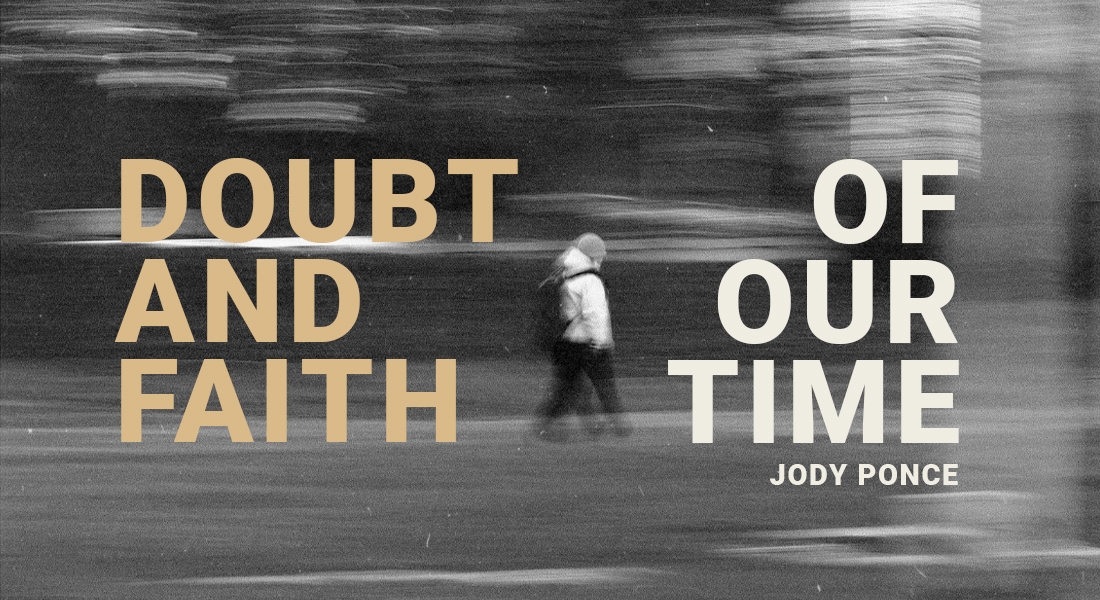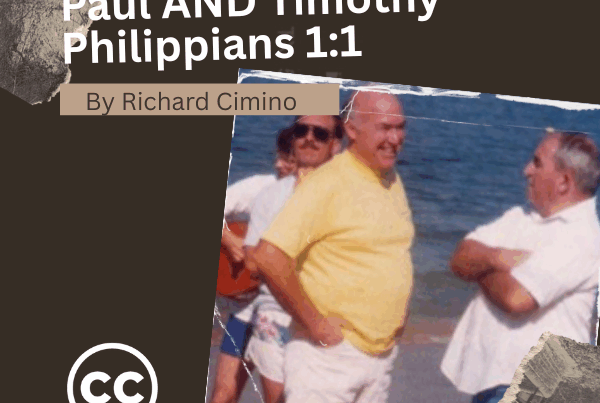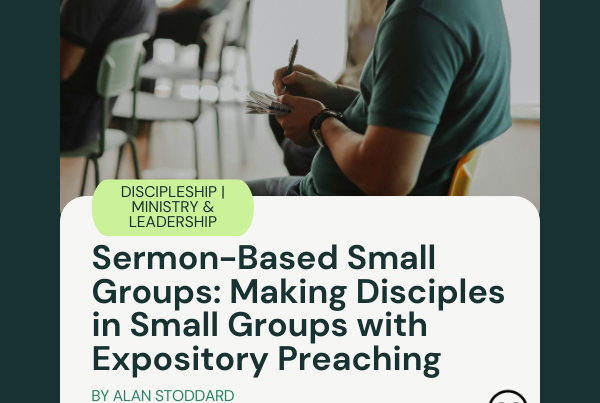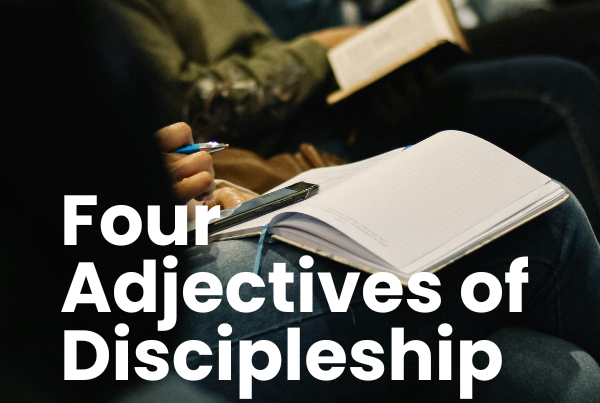
Sometimes we think that only Christians doubt, but that is not the case. If you abandoned your faith today and became an atheist, do you realise that you would still doubt?
Occasionally, even the most devoted Christians, during seasons of pain or suffering, when God seems utterly silent, lie in bed at night and wonder, “Does God really exist after all?”
Recently the topic of doubt and deconstruction has become a central conversation in the Christian church. These issues of doubt and deconstruction have become a part of the conversation largely due to massive cultural and political changes and the subsequent large drop off in church attendance and people identifying as Christian. In addition to those issues, the Church has also seen many Christian leaders deconstructing or abandoning the faith over the past two years.
In many ways, the struggle with doubt that Christians are experiencing in our contemporary context is not a uniquely Christian experience. We live in a world in which doubt is growing across all spectrums; not only is Christianity being questioned but everything is being questioned, and people do not know where to find their footing.
Exploring the Nature of Doubt
The purpose of this article is to explore the nature of doubt in our current cultural moment. How is doubt expressed in a world grounded in a materialistic scientific worldview? Where do we find space to explore existential questions about human purpose and worth, and does science adequately answer these questions?
The eminent evolutionary biologist Richard Dawkins argues that science can answer all of our “how questions.” He asserts that science explains how the universe and humanity came to be and how we have evolved, but he states that the “why questions,” that is, existential questions, are “just silly questions.”1 His statements leave no room for doubt, but despite Dawkins’ scientific dismissal of the “why questions,” these questions remain. And so, of course, we do doubt his confident scientific assertions. Indeed, Albert Camus wrote that “the meaning of life is the most urgent of questions.”2 Where then does this leave us? How do we negotiate doubt and belief in this climate of the problematization of everything?
Doubt & Uncertainty
Have science and rationality replaced doubt? Or does doubt still permeate the human experience? The secular sociologist Pierre Bourdieu writes that science is now considered a form of “outmoded certainty,” arguing that science “has taken on all the past and present science of all other scientists, and is a kind of collective superego inscribed in institutions which constantly reassert the rules.”3 Do scientists like Dawkins represent these “outmoded conceptions of certainty and logic”? Where “certainty and logic” are “outmoded,” of course, doubt must abound, but does this doubt reveal itself by being unsure and tentative or does it somehow morph into violent criticism? Is the current western epidemic of panic and anxiety, which affects both the old and young, an indicator that doubt and uncertainty are at an all time high in our rational western secular experience?
Uncertainty Amid Conflicting Expert Opinions
These days, it often seems as if everyone is sure of themselves. A quick internet search leads to diet experts, exercise experts, parenting experts, breastfeeding experts, and social media experts, to name but a few. Each of these experts is sure of what they are saying. They believe strongly in the guidance they promote. The problem with our cultural moment is that we live in such a flood of internet-provided information that the strongly held beliefs of many experts very often contradict each other.
The question, of course, leaves us asking who should we believe? The doubt that modern individuals are forced to live with in the midst of such vast access to information is an enormously anxiety inducing state. Charles Peirce writes, “The irritation of doubt is the only immediate motive for the struggle to attain belief…. With the doubt, therefore, the struggle begins, and with the cessation of doubt it ends.”4 The problem we live with today is that the doubt never seems to end. We are living in an endlessly liminal state, where it is very difficult to find one’s footing. When we live in the midst of constantly contradictory information, how can we ever know what to believe?
Living in a Permanent State of Doubt
This gradual deconstruction of scientific authority had been crystallised most recently in feminist studies, transgender identities, and even the deeply questioned scientific claims around different Coronavirus issues. Biology is embattled and scientific understanding of evolutionary biology is being deeply questioned, not by religion or superstition but by educated academics. Here again we are introduced to doubt. In the Post-Christian West, we live in a permanent state of doubt. We lost our faith and replaced it with science. Science became our new authority. We explained humanity through evolutionary biology and the universe through physics and mathematics.
For a time, science appeared to fill the gap, however, it did not help us understand our own individual identity or purpose in this world.
Uncertainty Amid Unchecked Information
The days of unencumbered belief are behind us. The paradoxical irony is that there is simply too much information available to us today to believe anything fully. Pub quizzes are much less fun now that everyone is googling away furiously under the table. We can immediately find all of the answers about everything by checking our phones. With this vast access to information then do modern individuals struggle less with doubt? By no means. Now more than ever, people doubt everything.
Mark Davis writes, “the internet has made available a media environment in which traditional gatekeepers are easily bypassed, where extreme and misleading content is easily spreadable and where the sheer volume of available information itself gives rise to uncertainty.”5 Misinformation, fake news, cyber bots, fake accounts, doctored videos, partisan media, and conspiracy theories dominate our worries now more than ever. Indeed, in 2016, the Oxford English Dictionary’s word of the year was “post-truth.”6 The following year, 2017, former President Donald Trump’s Senior Counsel explained the Press Secretary’s account of inaugural crowd size as simply “alternative facts.”7 And in 2018, Oprah Winfrey gave her famous Golden Globes speech where she encouraged everyone to speak “their own truth.”8
In a post-truth world, everyone is entitled to their own version of truth. Both religious and scientific authority have been deconstructed. Concerns about the nature of truth lead us to ask, is everything eventually deconstructed?
A Kingdom-Centered Approach
Christianity, of course, claims to have ultimate truth, but historically it has also claimed to have a perfect hermeneutical understanding of every single aspect of it and this has led to so much historical pain. If doubt were allowed to exist in the midst of faith, perhaps these pains would have been avoided. If the Spanish inquisitioners more fully questioned whether torture and burning people at the stake was the best method of advancing the Kingdom, Christian history would have one less stain.
Perhaps, as Christians, we should simply state the following: I have faith and I have it because my belief in the Gospel of Jesus Christ is stronger than my doubts, but I do have doubts. And I cannot claim to walk in perfect hermeneutical light in all aspects of my faith in relation to every aspect of society, so I live my faith as fully as I can, empowered by the Holy Spirit. I wrestle with my doubts. I own them without shame or fear, and I apply them as fully to my doctrine as I do to the plurality of the differing views I encounter in the world I inhabit.
God’s Mercy & Grace
To doubt is human — but to believe is also human. To quote Mulder, “we want to believe.”9 But we cannot escape doubt. Abandoning your Christian faith will not eradicate doubt from your life. Just look at the epidemic of doubt and uncertainty sweeping across the secular world that we have examined in this article. In the secular world there is very little mercy for those who doubt. The polarised nature of our secular societies means there is only denunciation and cancellation for differing views. But there is mercy for the Christian who doubts: Jude 1:22 says, “Be merciful to those who doubt.”
Our God is so great that our doubts do not offend Him. He does not denounce us or cancel us but pours out mercy on us. He meets us in our doubts and walks with us through them. Let us walk humbly in the tension of our unresolved faith and trust God to meet us in our gaps of understanding. In the words of Dominic Done, “If all we care about is certainty, we lose the beauty of mystery. If all we value is explanation, we lose the joy of exploration. Deep faith is about progress, not perfection.”10
NOTES
1Richard Dawkins, The God Delusion (Boston, MA: Houghton Mifflin Harcourt, 2006).
2Albert Camus, The Myth of Sisyphus, and Other Essays, trans. Justin O’Brien (London: H. Hamilton, Ltd., 1965).
3Pierre Bourdieu, Science of Science and Reflexivity, trans. Richard Nice (Chicago, IL: University of Chicago Press, 2004), 83.
4Charles Sanders Peirce, The Fixation of Belief (Scotts Valley, CA: CreateSpace Independent Publishing Platform, 2017), 4-5.
5Mark Davis, “The Online Anti-Public Sphere,” European Journal of Cultural Studies 24, no. 1 (February 2021), 143-159.
6Jennifer Schuessler, “Post-Truth Defeats Alt-Right as Oxford’s Word of the Year,” New York Times, November 15, 2016.
7NBC News, Meet the Press (January 22, 2017).
8Giovanni Russonello, “Read Oprah Winfrey’s Golden Globes Speech,” New York Times, January 7, 2018.
9Ella Morton, “The X-Files ‘I Want To Believe:’ Poster’s Origin Story,” New Republic, December 29, 2015.
10Dominic Done, When Faith Fails: Finding God in the Shadow of Doubt (Nashville, TN: Thomas Nelson, 2019).






